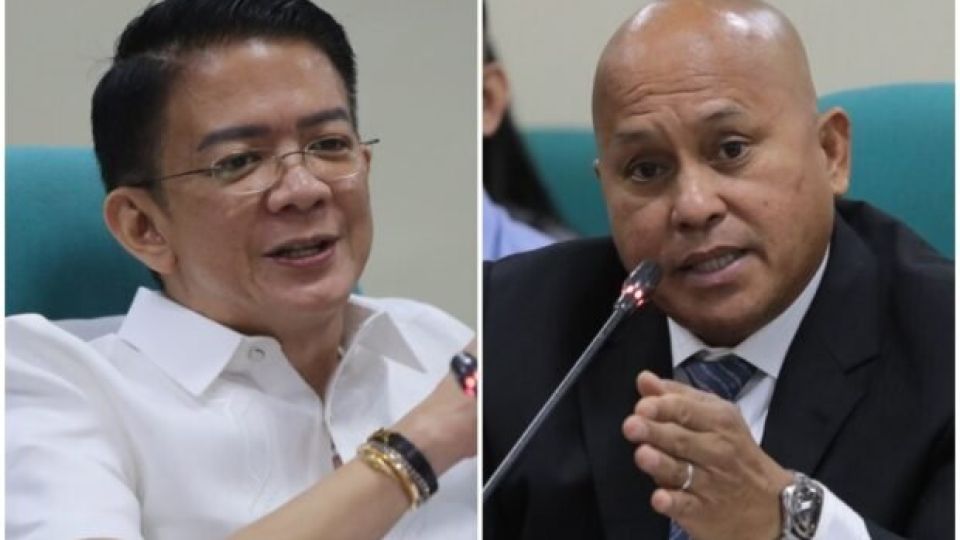June 13, 2023
MANILA — If others charge Uncle Sam for hosting his troops, why can’t Juan dela Cruz do the same?
Sen. Francis Escudero on Monday raised this argument as he supported Sen. Ronald dela Rosa’s proposal for the government to require the United States to pay for its presence in the country to help augment the pension funds of military and other uniformed personnel (MUP).
“The US usually pays host countries for its foreign bases,” Escudero told the Inquirer.
“The specifics of the agreements vary depending on each country and the terms negotiated, but the US will typically cover the costs of building and maintaining the facilities, as well as paying rent or other financial compensation to the host country,” he pointed out.
Escudero, a lawyer, said Washington would also normally give military and financial assistance “particularly to countries that are strategic partners in the region.”
“These agreements are usually established through formal diplomatic channels and can be revised or renegotiated over time,” he added.
With its strategic location, the Philippines, a former American colony, has been a longtime ally of the United States in the Asia-Pacific region.
Military analysts believe that the simmering tension in the Taiwan Strait between the United States and China further underscored Manila’s importance in sustaining Washington’s interests and in countering Beijing’s aggressive military actions.
Amend PH-US deals
According to Escudero, Dela Rosa may pursue his proposal by filing a resolution urging the entire 24-member chamber to press Malacañang to amend the US-Philippines’ Visiting Forces Agreement and the Enhanced Defense Cooperation Agreement to demand payment from the Americans.
On Sunday, Dela Rosa said the government may use the fees collected from the United States to finance the MUP pension fund, which President Ferdinand Marcos Jr. warned would run out within the next six years if it would not become self-sustaining.
Finance Secretary Benjamin Diokno said the ballooning unfunded liabilities in the retirement pay of former uniformed personnel, which National Treasurer Rosalia de Leon estimated at P9.6 trillion as of 2020, might eventually result in a “fiscal collapse.”
According to Dela Rosa, a retired chief of the Philippine National Police, the government may also lease out other prime properties of the Armed Forces of the Philippines to generate funds for the MUP retirement system.
“We have to amend the VFA and tell (the US) to pay. They have been using our land, but they don’t pay for anything,” Dela Rosa said in a radio interview.
“When they come here to the Philippines, we don’t even require them to get visas. But when we travel to the US, it’s difficult for us to get (US) visas,” he lamented.
Contentious issue
The diplomatic ties between the two countries had always been “one-sided” in favor of the United States, the senator insisted, claiming that “there’s no reciprocity at all” in the Philippine-US relations.
The proposed reforms in the MUP pension system are contained in a Senate bill, now being reviewed by a technical working group composed of representatives from the uniformed services and the government’s financial agencies.
Dela Rosa called on the president’s economic managers not to rush the passage of the measure as it would cause bigger problems for the country, such as the possible “mass exodus” of active uniformed personnel.
Diokno, he said, has been firmly insisting that those working in the AFP, PNP, Philippine Coast Guard, Philippine Public Safety College, Bureau of Jail Management and Penology, Bureau of Fire Protection, and Bureau of Corrections be made to contribute to their pension fund.
“If they all will file for early retirement, the government would pay trillions of pesos in retirement benefits. That would really lead to a fiscal collapse,” Dela Rosa warned.
Unlike the Government Service Insurance System and the Social Security System, whose members contribute part of their monthly salary to the retirement fund, MUP pensions are primarily funded by borrowings and interest with no contributions from the uniformed personnel.


